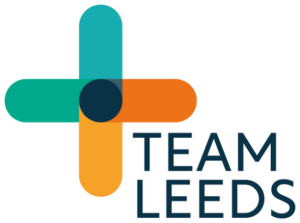 Here you will find the latest version of Leeds City Council’s Areas of Research Interest. For more information or to discuss research interests in more detail, please get in touch at policy@leeds.gov.uk
Here you will find the latest version of Leeds City Council’s Areas of Research Interest. For more information or to discuss research interests in more detail, please get in touch at policy@leeds.gov.uk
You can find a downloadable PDF version of the latest ARI here.
The Leeds City Council Areas of Research Interest (ARI) set out the council’s knowledge needs which vary in size and complexity. Policy and service change at the local authority level is often developed at pace, informed by internal research or practitioner experience, and may be driven by national government, community demand or other external factors. Within this context, ARI are intended to stimulate and support stronger collaboration with academic institutions in the city – focused on the biggest issues which affect the communities we serve and the future success of Leeds. The Leeds City Council ARI will be published annually on the Leeds Observatory, with any additional research needs and questions being updated as they arise. The council’s approach to using ARI to set out knowledge needs is growing and will continue to evolve.
The first set of Leeds City Council ARI, which were developed closely with the University of Leeds, were published in 2022 under the themes of Culture, Digital, Food and Inclusive Growth, with Place being added in 2023. This partnership approach to developing ARI has been acknowledged by other local authorities and academic institutions seeking to learn from the Leeds experience. This year, the 2024/25 ARI have been re-shaped to reflect the priorities in our refreshed Best City Ambition. The Ambition’s purpose is to set out the vision for the future of Leeds, focussed on tackling poverty and inequality and improving quality of life for everyone across the whole city. The priorities set out within the Ambition are focussed on the three interrelated pillars of Health and Wellbeing, Inclusive Growth and Zero Carbon. Although the ARI have been developed under these headings, there are interdependencies between them which are crucial to understanding the city and reducing inequalities – therefore we would encourage consideration of our ARI in the round. The Best City Ambition also promotes the importance of Team Leeds – the city coming together – to achieve shared goals. Over time and as our approach matures, we would like more partners to have the opportunity to contribute to shaping ARI underpinning the Ambition.
Policy research needs
The sections below set out an overarching summary of each area of research interest and highlight a range of specific research questions for 2024-25. The specific research questions give examples of key evidence needs, but are not exhaustive of all research questions across the council and city. Additionally, there are some areas listed below that are still under development and will be updated.
As noted above, the council’s interests are broad and dynamic, and evolve over time, so we are always interested in hearing about new research opportunities which might be relevant to us. For each area we have listed some key contacts who would be happy to discuss.
For a broader introductory discussion, or for help navigating the council, you can contact policy@leeds.gov.uk
Key Contact – Tony Cooke, Chief Officer Health Partnerships (Anthony.Cooke@leeds.gov.uk) Our ambition statement is: “Leeds will be a healthy and caring city for everyone: where those who are most likely to experience poverty improve their mental and physical health the fastest, with health and care inequalities reducing, and people being supported to thrive from early years to later life.” Further Children and Young People and Best Start ARI are in development. Further Adult Social Care and Marmot City ARI are currently in development.Our key research interests include:
Work and health: the impact of employment challenges across all groups
Impact of future population trends and patterns on wider health and wellbeing outcomes, services and the economy
Housing and wider health outcomes
Integration of health and social care and community support in reducing health inequalities
Key Contact – Fiona Bolam, Head of Economic Policy (Fiona.Bolam@leeds.gov.uk) Our ambition statement is: “Leeds will be a place where we create growth in our economy that works for everyone, where people and businesses can thrive, and we work together to tackle poverty and inequality.” Further Museums, Galleries and Heritage ARI are currently in development.Our key research interests include:
Business and regeneration
Cultural Compact for Leeds
Welfare support offer and financial resilience
Corporate Parenting – improving outcomes for care leavers around education and employment.
Key Contact – Polly Cook, Chief Officer Climate, Energy & Green Spaces (Polly.Cook@leeds.gov.uk) Our ambition statement is: “Leeds aims to become the first net zero city in the UK, rapidly reducing carbon emissions and reversing the decline in biodiversity, while supporting people to make more sustainable choices which can improve their standard of living.” Our key research interests include:
Developing inclusive public spaces
Adaptation in parks and public spaces for future climate impacts
Biodiversity and animal welfare
Personal choice and zero carbon
Key Contact – Mike Eakins, Head of Policy (Michael.Eakins@leeds.gov.uk) Team Leeds is about sharing ideas and learning, working in genuine partnership, being ambitious about our collective social, economic and environmental impact, and using our buildings, assets and other resources more collectively and creatively to deliver on shared goals. Team Leeds can be demonstrated through many different means, but our 6 principles help to articulate the Team Leeds approach. These include being Good Neighbours, Community Power, Innovation Impact, Healthy Society, Social Responsibility and Strength Based Approaches. Our key research interests include:
Digital Inclusion and Artificial Intelligence
Community Power and social assets
